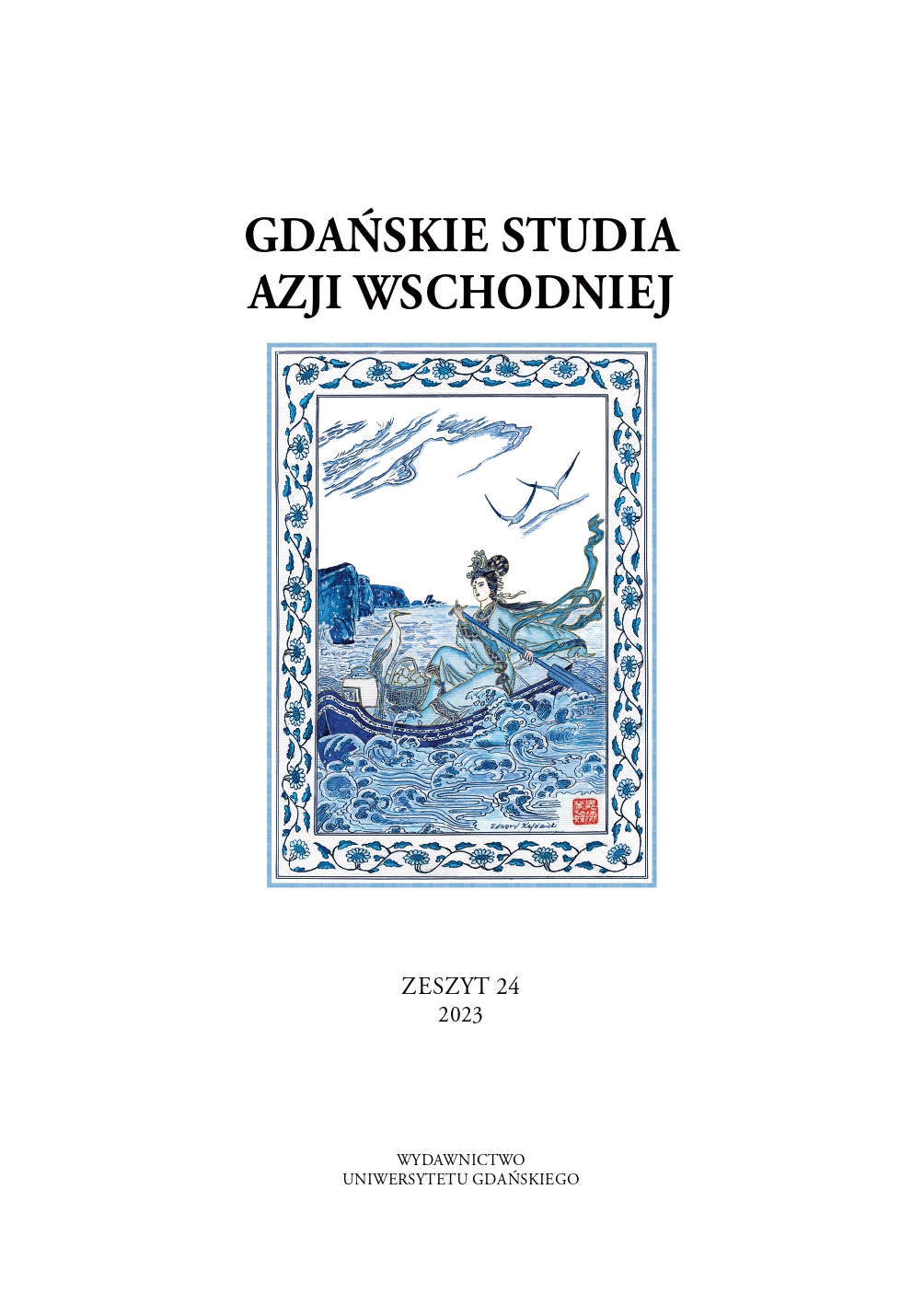Możliwości utrzymywania stosunków dyplomatycznych z Tajwanem z uwzględnieniem kontekstu prawnego, gospodarczego i politycznego
Abstrakt
Taiwan’s current status has been shaped by a multitude of historical, legal, economic, and political circumstances. However, as outlined in this article, its status does not conform to the ‘one China’ principle promoted by the People’s Republic of China, according to which it should be treated as a Chinese province. The possibility of maintaining diplomatic relations with Taiwan is, therefore, largely dependent on current political arrangements, and a decision in this regard should be tailored to the agenda and objectives of each country that is considering establishing such relations. Over the last few years, for example, one can observe a slow change of stance in this regard on the part of the United States, Japan, and EU member states, which, in the face of the war in Ukraine and growing tensions between Western countries and China, have begun to express support for Taiwan’s democratic society with greater boldness. This article makes exemplary recommendations touching on three main spheres of activity – diplomatic, economic, and military – that can be used by democratic states wishing to demonstrate support for Taiwan in its long struggle for international subject status.
Downloads
Bibliografia
Antonowicz L., Status prawnomiędzynarodowy Republiki Chińskiej na Tajwanie [w:] Tajwan w stosunkach międzynarodowych, red. E. Haliżak, Wydawnictwo Naukowe Scholar, Warszawa 1997.
A quick guide to the US-China trade war, BBC News, 16.01.2020, https://www.bbc.com/news/ business-45899310 (dostęp: 9.03.2023).
A Victory for World’s People, Crushing Defeat for U.S. Imperialism, „Peking Review” 1971, no. 44. Bartosik J., Przeszłość jest prologiem, Zona Zero, Warszawa 2019.
Biden: Jeśli Chiny zaatakują Tajwan, będziemy bronić wyspy, „Rzeczpospolita”, 19.09.2022, https:// www.rp.pl/dyplomacja/art37078011-biden-jesli-chiny-zaatakuja-tajwan-bedziemy-bronicwyspy (dostęp: 7.03.2023).
Boston Consulting Group & Semiconductor Industry Association, Strengthening the Global Semiconductor Supply Chain in an Uncertain Era, Boston – Massachusetts 2021.
Chen Y.H, Japan’s Taiwan Policy in the Xi Jinping Era: Moving Toward Strategic Clarity, „Przegląd Strategiczny” 2022, nr 15.
Chen Y.J., Must Taiwan Remain Invisible for the Next 50 Years?, „The Diplomat”, 25.10.2021, https:// thediplomat.com/2021/10/must-taiwan-remain-invisible-for-the-next-50-years/ (dostęp: 6.03.2023).
Chung L., Support grows for Taiwan to take part in UN, but status change ‘still runs through Beijing’, „South China Morning Post”, 30.10.2021, https://www.scmp.com/news/china/diplomacy/article/3154280/support-grows-taiwan-take-part-un-status-change-still-runs (dostęp: 7.03.2023).
Cobbins N.K., Taiwanese Sovereignity & the United States’ Assurance and Dissuation Alliance to Combat Chinese Use of Force, July 2021, https://www.airuniversity.af.edu/Portals/10/ISR/student-papers/AY21-22/TaiwaineseSovereigntyDissuation_Cobbins.pdf (dostęp: 13.03.2023).
Cooper H., Schmitt E., Gibbons-Neff T., Soaring Death Toll Gives Grim Insight Into Russian Tactics, „The New York Times”, 2.02.2023, https://www.nytimes.com/2023/02/02/us/politics/ ukraine-russia-casualties.html (dostęp: 13.03.2023).
Davidson H., Nancy Pelosi arrives in Taiwan as China puts military on high alert, „The Guardian”, 2.08.2022, https://www.theguardian.com/world/2022/aug/02/nancy-pelosi-lands-intaiwan-amid-soaring-tensions-with-china (dostęp: 13.03.2023).
Drun J., Glaser B.S., The Distortion of UN Resolution 2758 to Limit Taiwan’s Access to the United Nations. Report, GMF, Washington, DC – Ankara – Belgrade 2022.
Dryer J.T., The Evolution of a Taiwanese National Identity, „Asia Program Special Report” 2004, no. 114.
Economy E.C., The Third Revolution: Xi Jinping and the New Chinese State, Oxford University Press, Oxford 2018.
Election Study Center, National Chengchi University, Taiwanese / Chinese Identity(1992/062022/12), https://esc.nccu.edu.tw/PageDoc/Detail?fid=7800&id=6961 (dostęp: 6.03.2023).
Europe’s urgent need to invest in a leading-edge semiconductor ecosystem, Kearney, 23.02.2022, https:// www.kearney.com/industry/technology/article/-/insights/europes-urgent-need-to-investin-a-leading-edge-semiconductor-ecosystem (dostęp: 13.09.2023).
Global Firepower, Comparison of China and Russia Military Strengths (2023), https://www.globalfirepower.com/countries-comparison-detail.php?country1=china&country2=russia (dostęp: 13.03.2023).
Kajimoto T., Yamaguchi T., Japan unveils record budget in boost to military spending, „Reuters”, 23.12.2022, https://www.reuters.com/markets/asia/japan-unveils-record-budget-boostmilitary-capacity-2022-12-23/ (dostęp: 13.03.2023).
Kissinger H., O Chinach, tłum. M. Komorowska, Wydawnictwo Czarne, Wołowiec 2017.
Kuźniar R., Porządek międzynarodowy. Perspektywa ontologiczna, Wydawnictwo Naukowe Scholar, Warszawa 2019.
Lee C.Y., Ukraine and Taiwan: Comparison, Interaction, and Demonstration, „Taiwan Insight”, 4.04.2022, https://taiwaninsight.org/2022/04/04/ukraine-and-taiwan-comparison-interaction-anddemonstration/ (dostęp: 9.03.2023).
Li K.T., What Is Taiwan’s Legal Status According to International Law, Japan, and the US?, „The News Lens”, 2.12.2019, https://international.thenewslens.com/feature/taiwan-for-sale2020/128242 (dostęp:14.03.2023).
Lin C.F., Wu C.H., Is Taiwan a State?, „Verfassungsblog”, 18.10.2022, https://verfassungsblog.de/ is-taiwan-a-state/ (dostęp: 6.03.2023).
Łukasiewicz P., Republika Chińska na Tajwanie – pytanie o status prawnomiędzynarodowy, „Gdańskie Studia Azji Wschodniej” 2010, z. 10.
Martina M., Brunnstrom D., CIA chief warns against underestimating Xi’s ambitions toward Taiwan, „Reuters”, 3.02.2023, https://www.reuters.com/world/cia-chief-says-chinas-xi-little-sobered-byukraine-war-2023-02-02/ (dostęp: 9.03.2023).
Mengin F., The Substitution of Convential Diplomatic Relations: The Case of Taiwan [w:] Innovation in Diplomatic Practice, ed. J. Melissen, Polgrave Macmillan, London 1999.
Miller C., Chip War. The Fight for the World’s Most Critical Technology, Simon & Schuster Ltd, London 2022.
Nicita A., Razo C., China: The rise of a trade titan, „UNCTAD News”, 27.04.2021, https://unctad. org/news/china-rise-trade-titan (dostęp: 7.03.2023).
North D.C., Zrozumieć przemiany gospodarcze, tłum. J. Stawiński, Oficyna a Wolters Kluwer business, Warszawa 2014.
Organization of Economic Co-Operation and Development, The Belt and Road Initiative in the global trade, investment and finance landscape, Paris 2018.
Ostaszewski P., ChRL i problem Tajwanu [w:] Chińska Republika Ludowa we współczesnych stosunkach międzynarodowych, red. P. Ostaszewski, SGH w Warszawie, Warszawa 2011.
Pangsy-Kania S., Od „Made in China” do „Created in China” – droga Chin do supremacji innowacyjnej. „Gdańskie Studia Azji Wschodniej” 2021, z. 19.
Pascal A., Taiwan’s Think Tanks and the Practice of Unofficial Diplomacy, „The Asia Dialogue”, 20.08.2019, https://theasiadialogue.com/2019/08/20/taiwans-think-tanks-and-the-practiceof-unofficial-diplomacy/ (dostęp: 6.03.2023).
Qin A., Erlanger S., As Distrust of China Grows, Europe May Inch Closer to Taiwan, „The New York Times”, 10.11.2021, https://www.nytimes.com/2021/11/10/world/asia/taiwan-europe-china.html (dostęp:13.03.2023).
Rachman G., Ukraine and the start of a second cold war, „Financial Times”, 6.06.2022, https://www. ft.com/content/34481fbd-4ca7-4bb3-bef5-e68fefed7438 (dostęp: 13.03.2023).
Razo C., China’s participation in global value chains, „Flourish”, 3.05.2021, https://public.flourish. studio/visualisation/5871475/ (dostęp: 7.03.2023).
Rich T.S., Does It Matter If Taiwan Loses Formal Recognition?, „Australian Outlook”, 19.10.2019, https://www.internationalaffairs.org.au/australianoutlook/does-it-matter-if-taiwan-losesformal-recognition/ (dostęp: 14.03.2023).
Ruta M., How the war in Ukraine is reshaping world trade and investment, „World Bank Blogs”, 03.05.2022, https://blogs.worldbank.org/developmenttalk/how-war-ukraine-reshapingworld-trade-and-investment (dostęp: 14.03.2023).
Sławiński R., Historia Chin i Tajwanu, Askon, Warszawa 2002.
Takahashi K., How Would Japan Respond to a Taiwan Contingency?, „The Diplomat”, 20.08.2022, https://thediplomat.com/2022/08/how-would-japan-respond-to-a-taiwan-contingency/ (dostęp: 13.03.2023).
Taleb N.N., A Clash of Two Systems, „Incerto”, 19.04.2022, https://medium.com/incerto/ a-clash-of-two-systems-47009e9715e2 (dostęp: 9.03.2023).
The United States *One China Policy* is NOT the Same as the PRC *One China Principle*, US Taiwan Business Council, 1.01.2022, https://www.us-taiwan.org/resources/faq-the-united-statesone-china-policy-is-not-the-same-as-the-prc-one-china-principle/ (dostęp: 19.09.2023).
Winkler S., Taiwan’s UN Dilemma: To Be or Not To Be, „Brookings Institute Taiwan-US Quarterly Analysis”, 20.06.2012, https://www.brookings.edu/opinions/taiwans-un-dilemma-to-be-or- -not-to-be/ (dostęp: 2.03.2023).
World Population Review, Countries that Recognize Taiwan, https://worldpopulationreview.com/ country-rankings/countries-that-recognize-taiwan (dostęp: 2.03.2023).
Ziętek A.W., Żakowski K., Pietrzyk O., Polityka zagraniczna Japonii, Wydawnictwo UMCS, Lublin 2018.

 Uniwersyteckie Czasopisma Naukowe
Uniwersyteckie Czasopisma Naukowe





